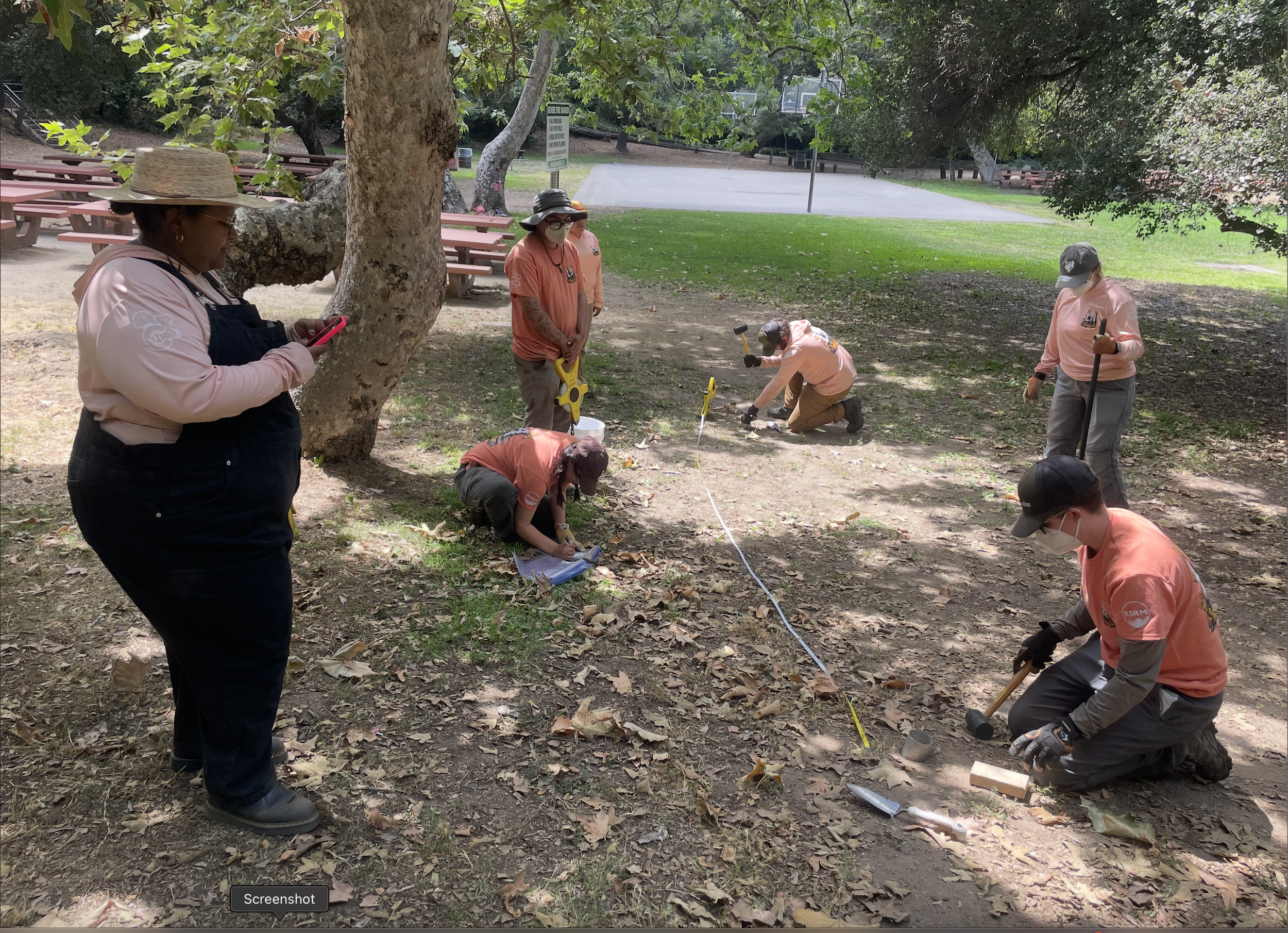CSU-Channel Islands Students Conduct Soil Testing in Rustic Canyon Park
Dr. Timnit Kefela oversees her students as they collect soil samples in Rustic Canyon Park.
By Laurel Busby
News & Information Editor
A class of CSU-Channel Islands students gathered soil samples in Pacific Palisades on Tuesday as part of an annual summer program to aid disaster-impacted areas.
In January, some of the same students traveled to Maui to donate their time and energy to Lahaina fire victims, and, in previous years, they have visited other areas, including New Orleans, Central California, and the Cook Islands. Their goal is always to find ways to help in whatever manner a particular community requires, generally beginning about six months after the disaster occurred.
“That's when people's energy levels are gone, the media has gone, and the adrenaline's gone,” said Prof. Sean Anderson, “People just kind of feel forgotten. These students are very dedicated and really want to help. They were impacted by the fires themselves, and they’re doing their best to show up.”
Because FEMA took the unprecedented step of not testing soil after conducting debris removal for the Jan. 7 fires, the class is one of the groups addressing that void.
At Rustic Canyon Park, their two professors guided the students as they endeavored to get a wide array of samples throughout the park. The group took one sample of playground sand, plus five samples at each of six different areas—four of those locations were in the lower park, including near the picnic tables, in the far corner of the park, near the asphalt path that lowers into the lower park, and beside the playground, plus five samples were taken in the upper park’s eucalyptus grove and another five within a parking lot median. The overall aim was to get a varied spread, so that data wouldn’t be skewed by simply checking one area.
The process involved hammering an aluminum cylindrical core into each sample spot, then scooping that earth into a labeled Ziploc bag for testing. The students then leveled the ground to ensure they left no tripping hazards.
“A lot of people interact in these natural and public spaces, and the public wants to ensure that they are safe,” said Dr. Timnit Kefela. “There seems to be public concern about soil health, and so that's what we're stepping in to do here.”
Anderson added that at each disaster location they endeavor to query the public and fill the recovery gaps that they uncover.
“We act like a free consulting firm, and we do whatever people ask,” he said.
Additionally, the class is conducting testing in Topanga Canyon and Altadena. In the Palisades, they tested solely at public locations, although they were denied access to Will Rogers State Historic Park, which is being used by the U.S. Army Corps of Engineers, Anderson said.
As part of the program, students learn ecotoxicology to prepare for the technical demands of getting good quality samples. Their testing results for heavy metals and plastic-associated pollutants in the soils are expected to be available in about three months, according to Kefela.
A federal grant had funded the program. Unfortunately, about six weeks before their class was scheduled to begin this summer, funding was cancelled because the federal government no longer wished to fund “community-based learning and environmental education,” Anderson said.
The professors scrambled to find replacement funding, but they couldn’t fully replace it. The class dropped from 40 students to less than half that number. Many of the students are participating solely as volunteers because they can’t afford the class fee to receive college credit.
However, the ones who remained were thankful for the opportunity to contribute to the community.
“it’s been really nice being a part of this effort,” said student Judyann Bibian, who also helped at the Maui fire site. “It’s been interesting to see the similarities and differences with how certain communities rebuild, and I’m happy to help them recover in whatever way I can.”
If anyone has a recovery project that they would like the students’ help to accomplish, reach out to Prof. Sean Anderson at sean.anderson@csuci.edu or Dr.Timnit Kefela at Timnit.kefela@csuci.edu.


